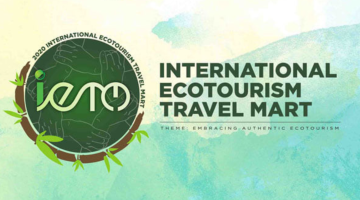POSTED Apr 25, 2022 - 04:20 PM
Changing the way we do business through sustainability
While certain companies have been at the forefront of the sustainability agenda, some haven’t been so quick to react. Here's why
Corporations today have slowed down their old-fashioned focus on profit to incorporate more sustainable practices. According to the 2021 CEO survey by the PwC Management Association of the Philippines, more than two-thirds of 178 chief executive officers (CEOs) in the Philippines have committed to boost spending for environment, social, and governance (ESG) initiatives - with the COVID-19 pandemic becoming a catalyst to accelerate this agenda.
In a volatile economy, a company’s long-term sustainability strategy can be the key differentiator that separates it from its competitors. To stay competitive and meet the demands of stakeholders, companies have been forced to rethink their strategies and figure out how they can balance profitability with environmental, social, and economic responsibility. The days of simply pumping out products at breakneck speed while ignoring ecosystem health are over.
Growing pressure from the public
As consumer behavior and expectations evolve, demand for change is seen to snowball. In a 2019 survey by McKinsey & Company, 68 percent of 2,000 consumers “consider the use of sustainable materials to be an important purchasing factor” while 63 percent consider a brand’s promotion of sustainability.
Meanwhile, PwC Philippines’ deal and corporate finance managing partner Mary Jade Roxas-Divinagracia said in a press briefing: “Customers, as they say, will vote with their wallets and will choose to support companies and brands that they believe are aligned with their values. Also, we see that more investors will demand that their investee companies are ESG-compliant.”
The current challenge
Based on the same PwC survey, only 36 percent of CEOs said their companies were actually measuring and reporting the financial impact of their sustainability practices, which mostly comprised large publicly listed corporations required by corporate regulators to do so.
“The goal of most business leaders is not to go back to how business was done pre-pandemic, but to build something better,” Divinagracia said. She also said that while the pandemic seemed the most urgent concern, climate change would be a much bigger challenge, especially for the Philippines, which is historically prone to natural disasters and thus among the most vulnerable to climate change’s impact.
“However, when we drill down on the environmental initiatives of various businesses, only a few CEOs said that they track their carbon emission and make a deliberate effort in reducing carbon footprint,” she said.
Climate change initiatives
Corporate initiatives on combating climate change were limited in scope and were mostly only in the area of reducing paper, energy, and water consumption. While 69 percent had environmental, social, and governance (ESG) initiatives, only 43 percent have incorporated climate change and environmental damage into their strategic risk management activities.
“As more regulations are put in place, I think we will see more businesses incorporating ESG and climate considerations into their corporate strategy. We can still do better in terms of incorporating ESG in management KPIs (key performance indicators). ESG, as we know, is far too important, and it needs to be driven from the top,” Divinagracia said.
Most of the CEOs who said their firms were measuring their sustainability impact came from publicly listed corporations, but a number of privately held companies, even startups, were embracing ESG, at the behest of institutional investors that were required to report their ESG practices and compliance.
Social initiatives
Sixty-nine percent of CEOs have prioritized employee welfare by providing COVID-19 assistance while 61 percent provided their employees with mental, physical, and emotional health benefits.
During the pandemic, there were instances of experiencing challenges working from home. Hence, 47 percent provided work-from-home allowances as employees had to invest in faster internet and furnishings to make remote working comfortable and possible while 46 percent invested in digital learning resources.
“Employees will be motivated to work for companies that they can be proud of. So companies are, therefore, expected not just to respond to the needs of their shareholders, but to the wider network of their stakeholders as well,” Divinagracia said.
Long-term benefits of ESG
Alexander Cabrera, PwC Philippines chair emeritus, noted that in this year’s survey, it was noticeable that CEOs were now thinking more of the long-term benefits of ESG. “While the amount of CEOs that are confirming they’re going to integrate ESG into their business model is not yet a majority of the CEOs, I think it’s a very good momentum already,” he said.
Alma Jimenez, who spearheaded the Management Association of the Philippines’ (MAP) CEO Conference in 2021, said the survey reflected the reality that few companies knew how to produce ESG reports. Building such know-how would be something that the MAP could advocate for, she added.
“Also, right now, for most of the companies, the mood is more of firefighting. It’s like they look at the concept of ESG as something that they can do in better times when the company’s operation is already good and it’s something that they can train their sights on moving forward,” Jimenez said.
“So it’s a matter of accountability. If the public calls on the companies to be accountable for what they do in terms of ESG, they will be pressured, because it now will hurt the market if they will not come up with ESG practices.”
There were 178 business entities covered by the survey, 62 percent of which were large corporations and 26 percent were medium-sized, while small and micro-enterprises accounted for six percent each.
ORIGINAL SOURCE: https://business.inquirer.net/330960/corporate-ph-embraces-sustainability
Read more

A bagful of hope for Mother Earth CITEM partners with Oikos Philippines
Only a few weeks left before IFEX Philippines 2024 brings the food community a salu-salo to find the... Learn More

Healthy snacking as a wellspring for sustainability
Re-imagining nutrition and sustainability in today’s instant gratification society Learn More

CITEM joins world’s 1st eco-tourism travel mart
DTI's export promotions arm eyes to showcase sustainable brands Learn More

Making recycling accessible is this PH brand's business goal
by Daniel Asido Learn More
